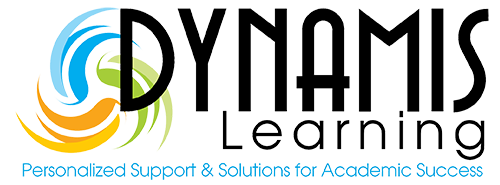“Sleep is an investment in the energy you need to be effective tomorrow.”
Tom Rath
Is limiting device time at bedtime with your child an ongoing struggle? When schools went virtual, did you notice a change in your child’s sleeping habits? Does your child have trouble falling asleep after spending time on devices at night?
If you’ve noticed that your child’s increased screen time has had some effect on their sleep, it could be because of the artificial blue light emitting from devices affecting their circadian rhythm.
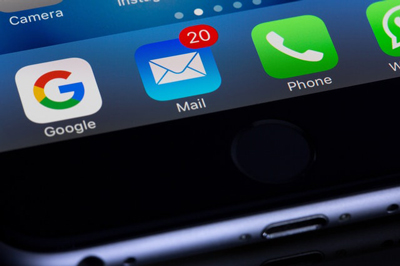 According to the Sleep Foundation, since technology has become more commonplace in society, sleep quality in children has suffered, resulting in a third of children and more than half of adolescents not getting adequate sleep. They go on to say, “Blue light is the wavelength of light that promotes alertness and performance,” and “it is the most important regulator of our sleep-wake cycle, or circadian rhythm.” Sources of artificial blue light include electronic devices like computers and smartphones, as well as fluorescent and Light-Emitting Diode (LED) lightbulbs. The artificial blue light emitting from devices and other light sources can suppress production of melatonin.
According to the Sleep Foundation, since technology has become more commonplace in society, sleep quality in children has suffered, resulting in a third of children and more than half of adolescents not getting adequate sleep. They go on to say, “Blue light is the wavelength of light that promotes alertness and performance,” and “it is the most important regulator of our sleep-wake cycle, or circadian rhythm.” Sources of artificial blue light include electronic devices like computers and smartphones, as well as fluorescent and Light-Emitting Diode (LED) lightbulbs. The artificial blue light emitting from devices and other light sources can suppress production of melatonin.
Melatonin is the hormone that creates feelings of sleepiness and contributes to better quality sleep and increased duration of sleep. However, the Sleep Foundation says that exposure to blue light emitting devices in the evening and nighttime interferes with our circadian rhythm by “tricking the brain into not producing melatonin before bed” and causing “us to feel less sleepy than we should at bedtime.” They point out that humans maintain a sleep-wake cycle based on the rising and setting of the sun. Because of this, melatonin levels naturally increase following the sunset, peak in the middle of the night, and then decrease gradually until morning.
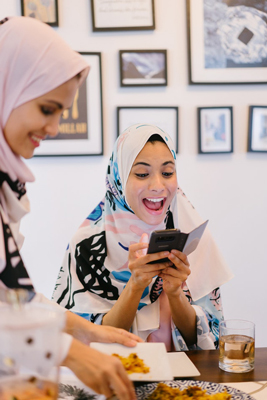 The benefits of melatonin are not only for assisting in promoting good sleep but for supporting a healthy body. According to Chronobiology, melatonin is necessary for a healthy immune system because it reduces inflammation, stimulates the immune system, helps our body’s own defenses act more efficiently, and reduces oxidative stress.
The benefits of melatonin are not only for assisting in promoting good sleep but for supporting a healthy body. According to Chronobiology, melatonin is necessary for a healthy immune system because it reduces inflammation, stimulates the immune system, helps our body’s own defenses act more efficiently, and reduces oxidative stress.
Harvard University states that blue light at night can affect your sleep and potentially cause disease.” In turn, this “may contribute to the causation of cancer, diabetes, heart disease, and obesity.” They say that blue light at night “throws the body’s biological clock—the circadian rhythm—out of whack,” causing sleep to suffer.
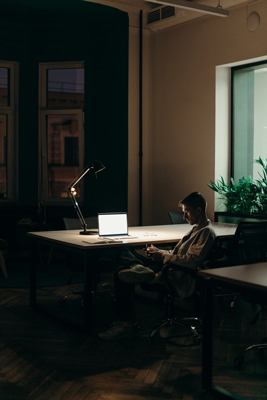 Kids are more vulnerable to the effects of blue light on melatonin production, the Sleep Foundation points out, and that exposure to blue light in the evenings suppressed the hormone “twice as much in children as compared to adults.” It is suggested that this is because children may be more sensitive to light than adults.
Kids are more vulnerable to the effects of blue light on melatonin production, the Sleep Foundation points out, and that exposure to blue light in the evenings suppressed the hormone “twice as much in children as compared to adults.” It is suggested that this is because children may be more sensitive to light than adults.
There have been several instances in my teaching career in which kids whose parents did not limit their screen time at night came to school exhausted because they were up late playing video games or on the internet. Those kids always seemed to struggle with energy levels and attention span throughout the day.
There was one family who came to us for help a while back whose child struggled with device usage at night. He was an elementary student who was always tired during the day and had trouble sleeping at night. We suggested a nighttime schedule that would restrict screen time in the evening for the child and incorporated a blue light filtering app for all devices. We saw an immediate improvement in the child’s alertness in the morning and ability to sleep through the night.
The following are some ways that the Sleep Foundation suggests reducing blue light exposure:
- Set a technology curfew by creating a nightly schedule for technology usage and incorporate calming activities before bed like reading, coloring, puzzles, meditation, etc.
- Create technology-free zones by storing devices outside of the bedroom
- Use blue light filters like apps and screen covers for devices and wear blue light blocking glasses
- Alter device settings like night mode or dark mode
- Switch to red lights for evening reading and nightlights—orange and yellow lights are options for the early evening
- Ensure daytime light exposure to synchronize circadian rhythm and promote sleepiness at bedtime
Disciplining one’s screen time is something that affects everyone, kids to adults. And, as we seek ways to improve our lifestyle, our device usage is part of developing a healthy lifestyle. Whether your child struggles with too much screen time or putting the device away when it’s getting close to bedtime, we, at Dynamis Learning Academy, are here to help your children with their wellbeing. We can help your child create structure and healthy habits related to device usage.
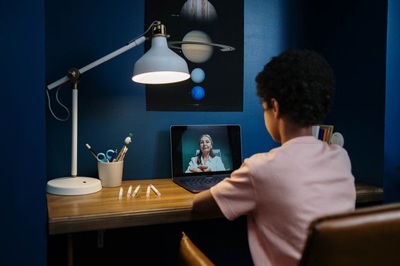 Contact the owner, Helen Panos at helen@dynamislearningacademy.com or at 770-282-9931, to schedule a free consultation and help your child reach his or her full potential when it comes to healthy habits.
Contact the owner, Helen Panos at helen@dynamislearningacademy.com or at 770-282-9931, to schedule a free consultation and help your child reach his or her full potential when it comes to healthy habits.
Helen is an expert educator with over 25 years of years of experience. She believes in the importance of helping children reach their potential and become well-rounded, intelligent citizens with a positive influence and impact on society. She assists parents in accessing the best skills, strategies, tools, and resources to help children be successful and ultimately excel in the world.
